Affecting an estimated one in three women in the UK at any one time, women still experience significant stigma going through menopause.
Despite increasing awareness, a steady rise in Google searches over the last 20 years and even some controversial menopause almond chocolate bars, women are statistically unlikely to receive medical help, leading some to question: “When did I become invisible?”
A new arts project in northeast London is looking to challenge stigmas, joining other groups in the area to raise awareness and provide support for women with menopause.
Invisible Visible Project, Walthamstow
Created by photographer Denise Barker, the Invisible Visible Project is a series of workshops taking place in libraries across London to explore menopause and perimenopause through photography, storytelling and art.
Perimenopause, the period leading up to menopause, is where women often experience the most intense symptoms.
While the average age of menopause in the UK is 51, perimenopause can often last five to seven years before this.
Barker said: “We called the project ‘Invisible Visible’, because there’s these conflicts between women as they get older, they feel like they’re becoming more and more invisible.
“You lose everything that you associate with being a young, attractive woman; you lose your role as a mother because you stop being of childbearing age.
“There’s this feeling that you are becoming more and more invisible and losing more and more of yourself and more of the role you’re valued for.”
Ran in collaboration with writer Nichola Charalambou and artist Tiana Westerhof, the project held a series of workshops in libraries across London over the past month.
The workshops invited women to share the impact menopause and perimenopause was having on them, and their hopes for the future.
Barker said: “My thoughts for the project was how can we bring women together to talk about menopause and break down taboos and open up the subjects and those things that women feel embarrassed about talking about?”
At a workshop at Lea Bridge Library in Walthamstow earlier this month, women were invited to share their feelings around perimenopause and menopause on pieces of fabric which will be made into a quilt in future workshops.
The experiences women shared varied, from issues accessing healthcare and severe perimenopausal symptoms, to those who felt new confidence and power in this stage of life.
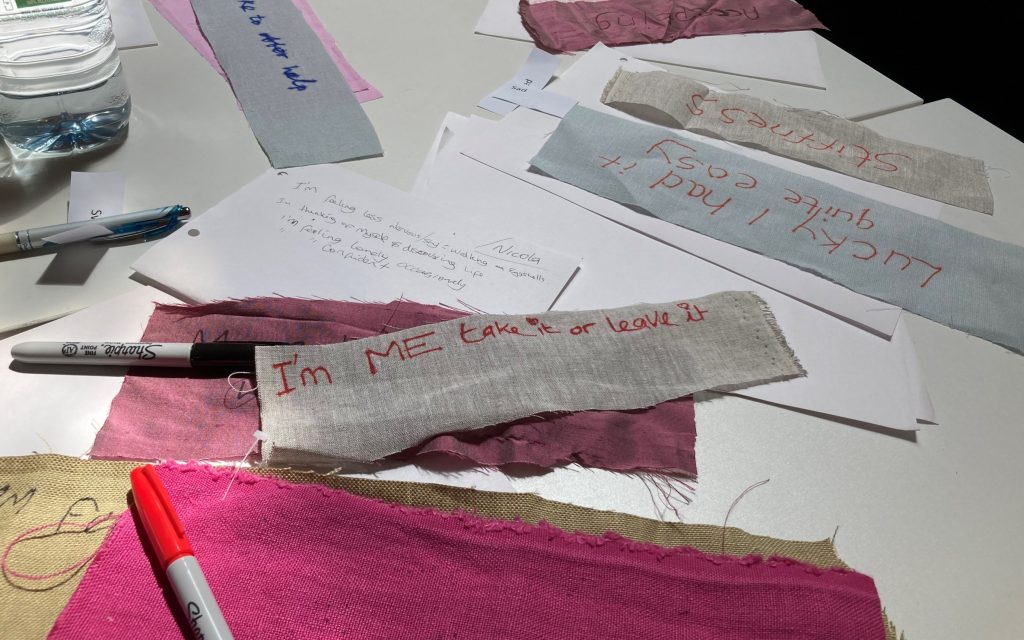
The group, backed by Arts Council funding, also held sessions in Islington, Fulham, Kensington, Streatham and Dartford.
Dee, a perimenopausal woman from Waltham Forest who attended the Lea Bridge workshop, said: “I see these sessions as a way for me to develop a deeper understanding of the creative process, and develop new ways of channelling my emotions and feelings around perimenopause.”
The trio plans to hold five further phases of workshops over the next 12 months, culminating in a final exhibition next summer which will show group and individual artwork.
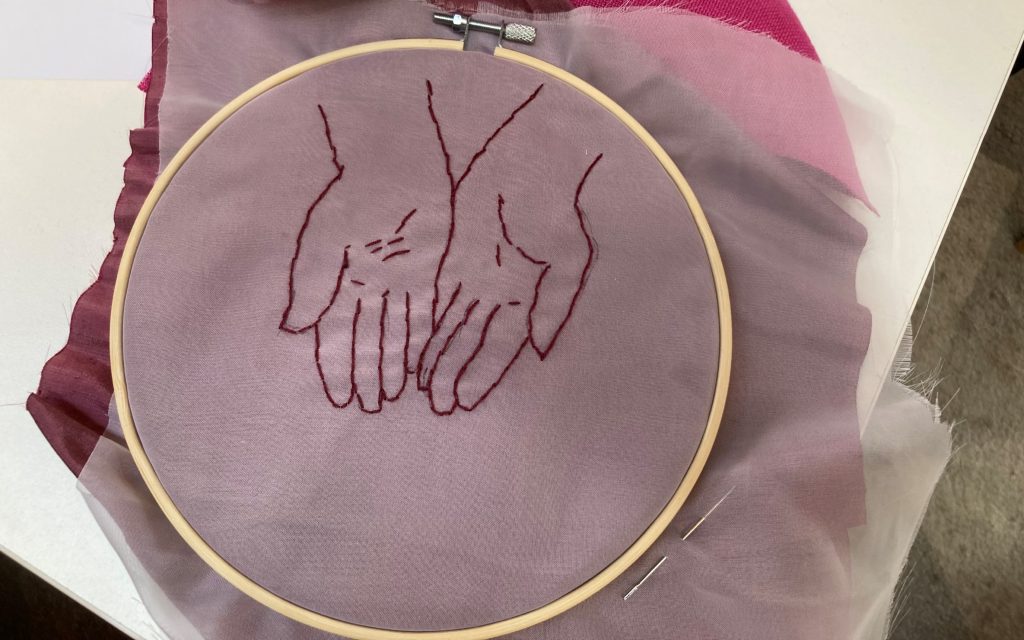
Official data about menopause can be difficult to find.
Research from the British Menopause Society (BMS) which found that 50% of women aged 45 to 65 who have experienced menopause in the past ten years had not consulted a healthcare professional about their symptoms.
In 2022, NHS England estimated there were around 13million people who are currently peri or menopausal in the UK, equivalent to a third of the entire UK female population.
With the BMS’s survey showing that 50% of women found their menopausal symptoms have impacted their home lives, and so few women accessing professional health advice, community groups across northeast London have developed their own ways to provide grassroots support.
Menopause and Women’s Health Café, Waltham Forest
Waltham Forest menopause and women’s health café provides women in northeast London a regular opportunity to discuss their experiences of menopause.
Founded in 2020 by local resident Jackie Grant, the group meets monthly to discuss issues ranging from menopause symptom treatments to fashion and wellbeing for women in northeast London.
Grant said: “Previously, no one was really interested in talking about menopause and I know that there were some people suffering in silence.
“I wanted to bring women together for them to know that they have other people to talk to and not feel alone.”
Dee, who also attends the café, said: “It is a place where you can meet and share how you feel, with people all at different stages. You can get advice and guidance in a safe space and it is a way for women to take care of menopause in a proactive and positive way.”
The café’s most recent meeting featured guest speakers Dr Remi Mogekwu and Dr Jennifer Owusu Adjei, obstetrics and gynaecology doctors at Newham hospital and founders of women’s health education platform Neara Health.
In a presentation to the women at the café, the doctors discussed various misconceptions about menopause and perimenopause, focusing on the pros and cons of Hormone Replacement Therapy (HRT).
In an at times emotional discussion, women discussed how their symptoms had impacted their personal and work lives, and their difficulty accessing services.
Neara Health, East London
Mogekwu and Adjei said they founded Neara Health to fill the gap in information between women and medical professionals on reproductive and sexual health.
Since establishing their company in 2020, the two have held workshops in schools, churches and community groups across London, discussing topics including puberty, fertility and menopause.
Asked about their experiences treating women in Newham, Mogekwu said a lack of sexual and reproductive health knowledge means some of her clinical time with patients is spent explaining the basics of women’s health, such as the menstrual cycle.
By holding talks and events in community groups, the pair hope women will be able to challenge their doctors to ensure they get the individualised healthcare they need.
Adjei said: “We want to empower women to have autonomy over their own health and when they go in for a 10-minute consultation, they feel empowered and prepared as opposed to just sitting or being passive.”
Most of their work around menopause in northeast London focuses on challenging misconceptions about the treatment options available for perimenopause, encouraging women to consider their options and seek support.
While the conversation in these groups sometimes veer into discussions about loss and grief for their past selves, the overall message is one of empowerment and strength, with women keen to support each other through the process.
The sentiment is summarised by Mogekwu, who said: “The menopause is not the end of your life. You can thrive when you go through menopause, and I think people should know there is life outside their hormones and gynae organs.”
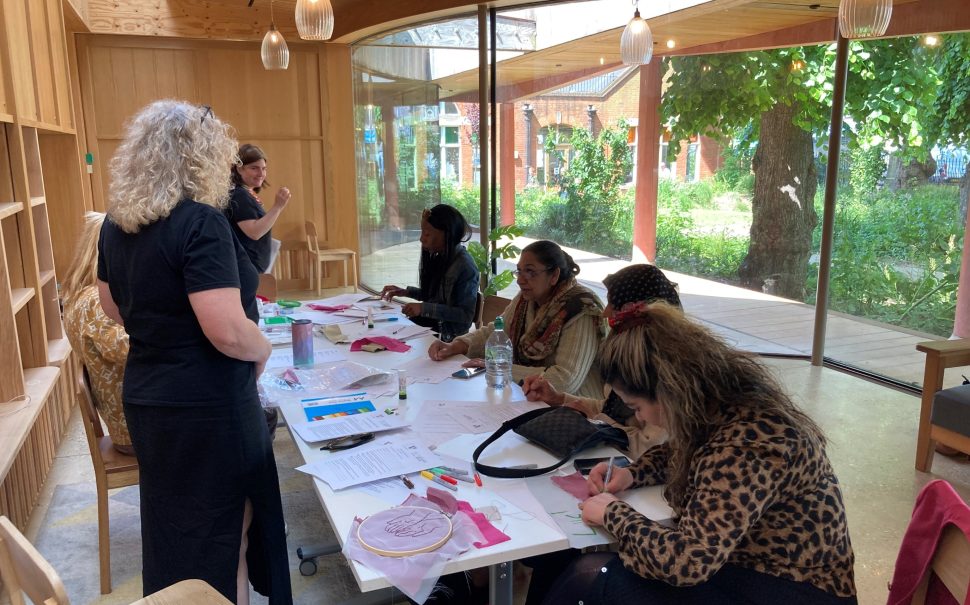
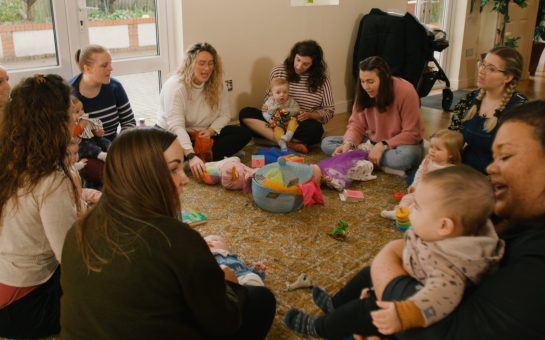
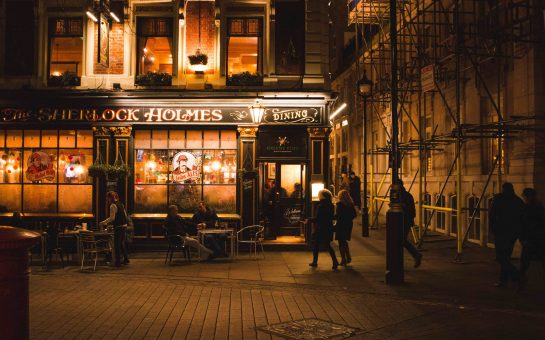

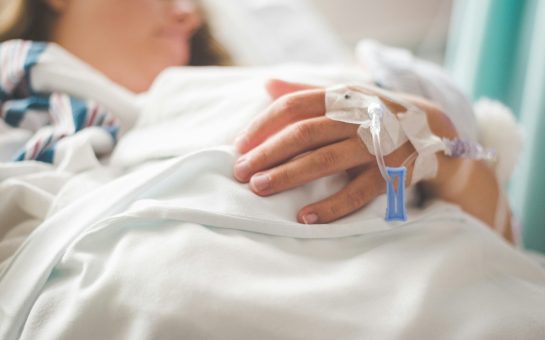
Join the discussion